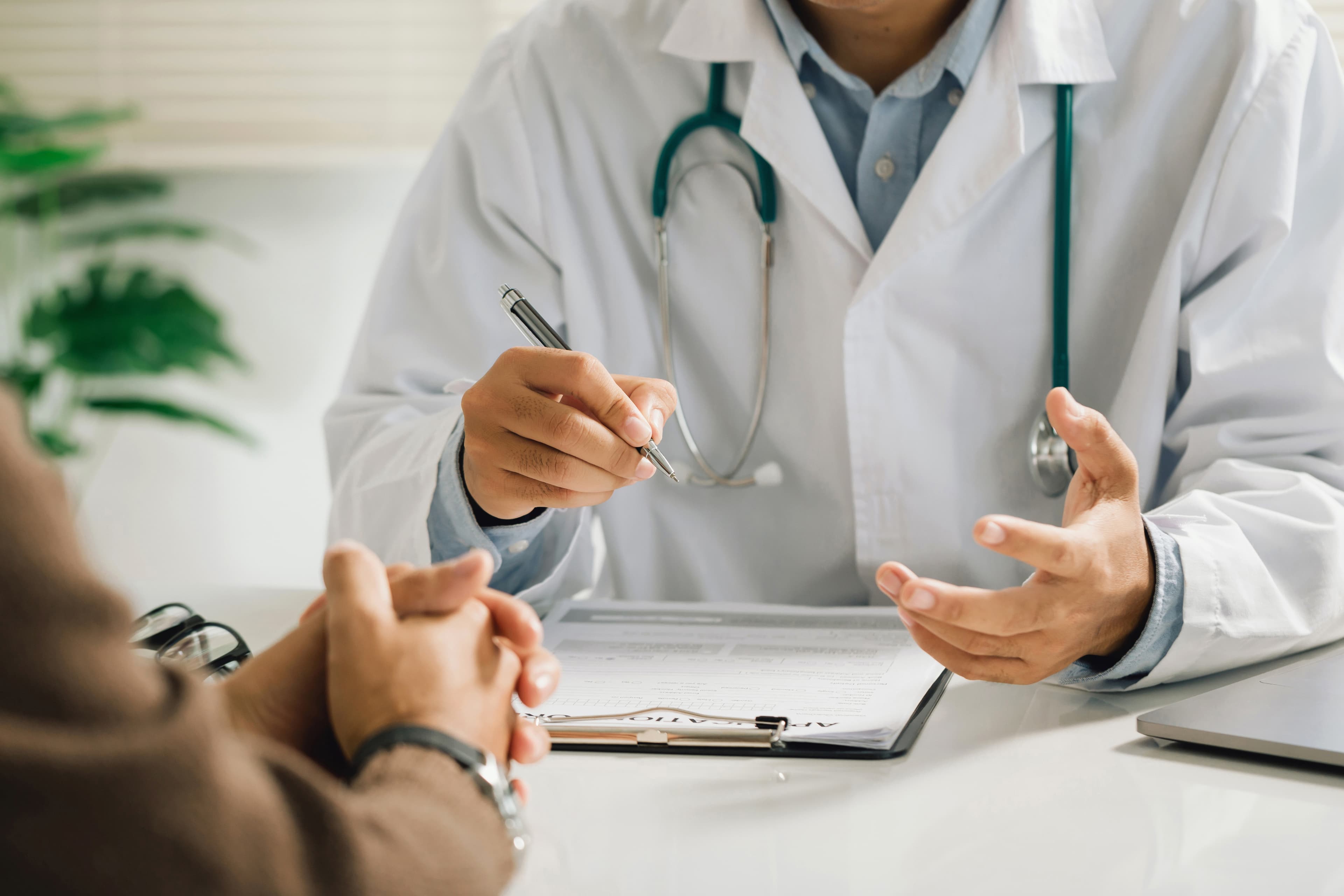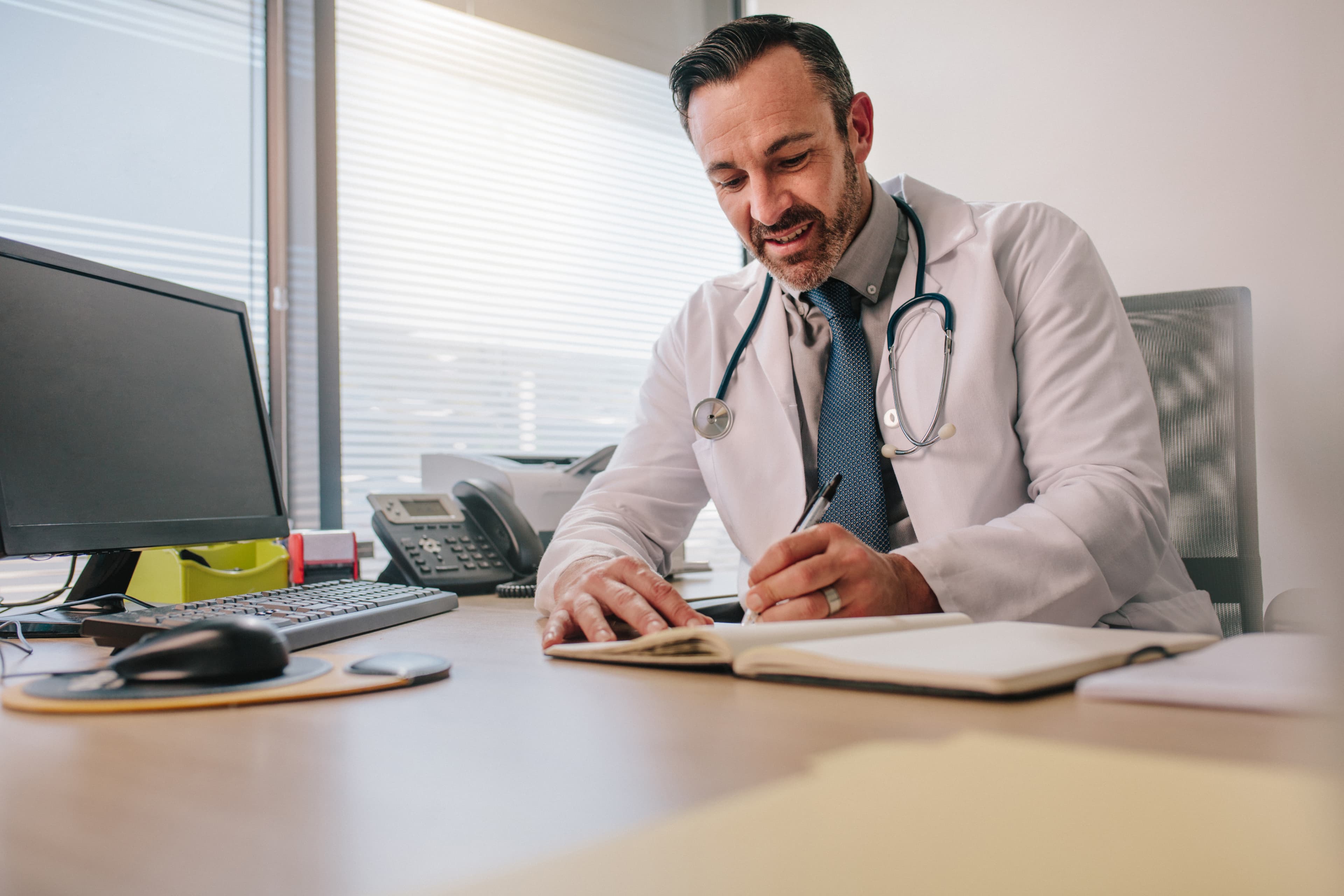
Anal Pain Diagnosis and Treatment
Anal pain is defined as the discomfort or pain experienced in or around the rectum or anus. The anus is the final part of the large intestine, spanning the last 3 to 4 centimetres, whereas the rectum is a 6-inch segment located just before the anus. Together, along with the surrounding skin, these structures form the perianal region and are known to be particularly sensitive.
Anal pain is a relatively common condition and can result from a variety of causes, ranging from mild to more serious. Most instances of anal pain are not considered severe, but some underlying causes may require specific medical treatment. Being aware of and acknowledging anal pain is essential, especially if the pain persists, worsens, or is accompanied by other unusual symptoms. It is crucial to seek medical advice without delay when necessary and avoid allowing embarrassment to act as a barrier to consulting a healthcare professional.
What are the potential causes of anal pain?
There are several common and less common causes of anal pain. Understanding these causes can help individuals pinpoint potential factors and better communicate their symptoms to a healthcare professional.
Frequent causes of anal pain include:
- Haemorrhoids: These are swollen blood vessels located within the anus or rectum, which can cause discomfort and pain.
- Infections: These include a variety of conditions, such as sexually transmitted infections (STIs) and fungal infections.
- Perianal Abscess: This condition involves an infection in an anal gland that leads to the development of an abscess.
- Anal Fissures: These are small, painful tears in the lining of the anus, often caused by trauma.
- Trauma: Straining during bowel movements, hard stools, or anal penetration can result in injury and pain.
- Pudendal Neuralgia: This is a condition where the pudendal nerve, which provides sensation to the anal and genital areas, becomes irritated or damaged.
Less common causes of anal pain include:
- Anal Fistula: This occurs when an anal abscess breaks through the skin, forming a tunnel that can cause discomfort and complications.
- Levator Ani Syndrome or Proctalgia Fugax: These conditions involve spasms in the muscles of the anal area, leading to intermittent or persistent pain.
- Inflammatory Bowel Disease (IBD): Conditions like Crohn's disease and ulcerative colitis affecting the rectum can result in pain and other symptoms.
- Rectal Ulcers: Ulcers in the rectum may develop due to conditions such as solitary rectal ulcer syndrome or Inflammatory Bowel Disease.
- Cancer: Cancer involving the anus or rectum is a rare but serious cause of anal pain.
- Anal Pruritus: This refers to a skin condition causing severe itching in and around the anus, which can be accompanied by pain.

What does anal pain feel like?
Healthcare professionals diagnosing anal pain often ask patients to describe their pain in detail. This can help in determining the underlying cause of the discomfort. Different symptoms and characteristics may point towards specific conditions.
Types of Anal Pain:
Sharp Anal Pain: Pain that feels sharp, cutting, or stinging could indicate an open wound, such as an anal fissure or ulcer. Muscle spasms, as seen in levator ani syndrome, may also cause sharp pain. A thrombosed haemorrhoid, which contains a blood clot, can result in intense, localised pain of this nature.
Anal pain with pressure: Swelling inside the anus, caused by conditions such as haemorrhoids, abscesses, or rarely, a tumour, can create a sensation of pressure accompanied by pain. If constipation leads to the presence of hardened stool impacted in the rectum or anal canal, this can also result in pain coupled with a feeling of pressure.
Anal pain with itching: When anal pain occurs with itching, it may suggest a skin condition in the area. Haemorrhoids, yeast infections, or anal warts—commonly caused by human papillomavirus (HPV)—are some examples.
Anal pain after pooping: Experiencing pain after a bowel movement is often indicative of irritation caused by the act of passing stool. Anal fissures are a frequent cause, as the stretching motion during pooping can aggravate the tear. Haemorrhoids may also become irritated, resulting in pain, bleeding, or prolapse (when haemorrhoids protrude from the anus).
Anal pain during your period: During menstruation, it is not unusual to feel anal discomfort. This is because the same chemical—prostaglandin—that causes uterine muscle contractions may also affect perianal muscles. Additionally, endometriosis involving the rectum can lead to anal pain and bleeding during menstrual periods.
Anal pain during pregnancy: Haemorrhoids and constipation, both common during pregnancy, are frequent culprits behind anal pain. As the pregnancy progresses, the weight of the growing foetus may place pressure on the perianal nerves, especially when sitting. Increased sitting time during later pregnancy stages may exacerbate the discomfort.
What should I do if I have anal pain?
In many cases, anal pain can be effectively managed at home. Often, it resolves on its own within a few days. However, if the pain persists, becomes more severe, or is accompanied by concerning symptoms such as rectal bleeding, consulting a healthcare provider is recommended. Timely medical intervention can prevent the condition from worsening and identify the underlying cause.
What medications or therapies can help treat anal pain at home?
To alleviate anal pain at home, consider the following remedies and treatments:
- Over-the-counter (OTC) pain relievers: Medications such as acetaminophen or nonsteroidal anti-inflammatory drugs (NSAIDs) can help manage pain.
- Topical creams: Medicated creams containing hydrocortisone or lidocaine can provide temporary relief.
- Sitz baths: Soaking the anus in warm water for approximately 20 minutes multiple times a day may soothe the area.
- Laxatives: Over-the-counter laxatives can be used to relieve constipation and prevent straining during bowel movements.
How is anal pain treated?
When home remedies fail to provide relief or when symptoms worsen, your healthcare professional will perform a thorough evaluation to determine the cause of the pain. Treatment is tailored to the underlying condition. Options include:
- Medications: Depending on the cause, antibiotics, antivirals, or antifungal treatments may be prescribed for infections.
- Prescription-strength pain relief: If OTC medications are ineffective, stronger painkillers may be recommended.
- Specialised treatments for IBD: For rectal inflammation caused by IBD, targeted medications may be prescribed.
- Surgical interventions: Surgery might be necessary for certain cases, such as repairing an anal fistula, removing a thrombosed haemorrhoid, or releasing tension in affected muscles.
To help relieve anal pain, you can:
- Eat a fiber-rich diet, stay hydrated, and exercise regularly.
- Take warm baths, especially if you experience pain after bowel movements.
- Use over-the-counter pain relief like ibuprofen or paracetamol.
- Apply specialized creams such as hydrocortisone for anal fissures or hemorrhoid creams for piles.
Medical Treatments
If self-care doesn't provide relief, your GP may recommend:
- For anal abscesses: Antibiotics or a minor surgical procedure to drain the infection.
- For anal fissures: Laxatives, medicated creams, or other treatments to promote healing.
- For hemorrhoids: Minor surgery to remove them if they're persistently painful.
- For anal fistulas: Surgery to treat the infected tunnel between the anus and rectum.
For Proctalgia Fugax
This condition, characterized by sudden anal muscle spasms, often doesn't require treatment. However, your doctor may suggest:
- Creams to relax blood vessels, such as diltiazem or glyceryl trinitrate.
- Injections to desensitize the nerves in the anal area.
- Using a salbutamol inhaler (commonly used for asthma) to relax the anal muscles.
For Levator Ani Syndrome
Treatment options for this condition, which causes chronic anal muscle pain, may include:
- Biofeedback therapy: Training to relax pelvic floor muscles.
- Botulinum toxin injections: To reduce muscle spasms.
- Electrogalvanic stimulation: Using electrical currents to stimulate and relax anal muscles.
- Nerve stimulation: To desensitize the nerves in the area.
- Salbutamol inhaler: This may also help relax the muscles.
If an underlying condition is causing your anal pain, your GP or specialist will provide a targeted treatment plan based on the diagnosis.
When should I seek medical advice about anal pain?
If you're uncertain about the cause of your anal pain or how to address it, contacting a healthcare professional is always a good idea.
Seek immediate medical assistance for the following symptoms:
- Severe pain that interferes with daily activities or disrupts your sleep.
- Pain that persists despite using over-the-counter treatments or becomes worse over time.
- Continuous or heavy rectal bleeding accompanying the pain.
- Constipation that doesn't respond to laxatives or causes significant discomfort during bowel movements.

Takeaway
Experiencing anal pain can be both physically uncomfortable and emotionally distressing. The embarrassment often associated with discussing this issue can prevent people from seeking the help they need.
However, it's important to remember that anal pain is a common medical concern, and healthcare professionals are trained to address such issues without judgement. Taking proactive steps to manage and treat anal pain can greatly improve one's quality of life, enabling a return to normal daily activities. Reach out to us today!
It's easy to get started
01
Find Your Service
Choose from a range of medical services tailored to your needs.
02
Book Your Appointment
Select a convenient date, time, and location in just a few clicks.
03
Get Expert Care
Receive personalized, professional care from trusted healthcare providers.


